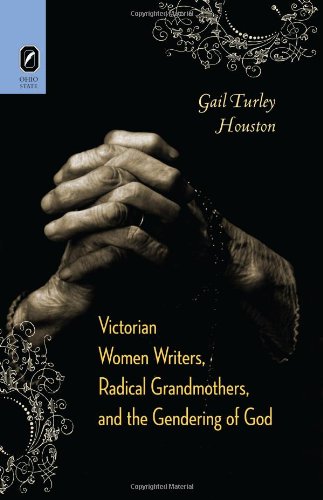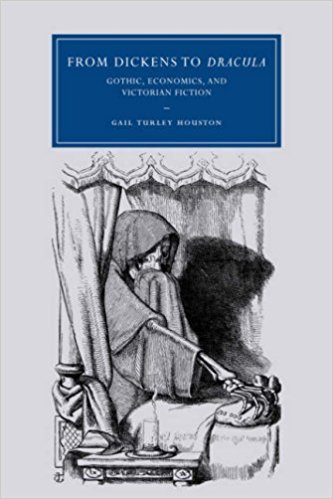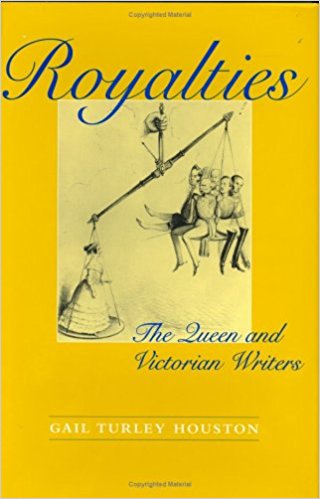Gail Turley Houston
Gail Turley Houston is a Professor in the Department of English Language and Literature at the University of New Mexico, where she has also served as Chair.
Victorian Women Writers, Radical Grandmothers, and the Gendering of God
 | "If Victorian women writers yearned for authorial forebears, or, in Elizabeth Barrett Browning’s words, for 'grandmothers,' there were, Gail Turley Houston argues, grandmothers who in the late eighteenth and early nineteenth centuries envisioned powerful female divinities that would reconfigure society. Like many Victorian women writers, they experienced a sense of what Barrett Browning termed 'mother-want' inextricably connected to 'mother-god-want.' These millenarian and socialist feminist grandmothers believed the time had come for women to initiate the earthly paradise that patriarchal institutions had failed to establish. Recuperating a symbolic divine in the form of the Great Mother—a pagan Virgin Mary, a female messiah, and a titanic Eve—Joanna Southcott, Eliza Sharples, Frances Wright, and others set the stage for Victorian women writers to envision and impart emanations of puissant Christian and pagan goddesses, enabling them to acquire the authorial legitimacy patriarchal culture denied them. Though the Victorian authors studied by Houston—Barrett Browning, Charlotte Brontë, Florence Nightingale, Anna Jameson, and George Eliot—often masked progressive rhetoric, even in some cases seeming to reject these foremothers, their radical genealogy reappeared in mystic, metaphysical revisions of divinity that insisted that deity be understood, at least in part, as substantively female." Buy this bookAmazon.com | University Bookstore |
From Dickens to Dracula: Gothic, Economics, and Victorian Fiction
 | "Ranging from the panoramic novels of Dickens to the horror of Dracula, Gail Turley Houston examines the ways in which the language and imagery of economics, commerce and banking are transformed in Victorian Gothic fiction, and traces literary and uncanny elements in economic writings of the period. Houston shows how banking crises were often linked with ghosts or inexplicable non-human forces and financial panic was figured through Gothic or supernatural means. In Little Dorrit and Villette characters are literally haunted by money, while the unnameable intimations of Dracula and Dr. Jekyll and Mr Hyde are represented alongside realist economic concerns. Houston pays particular attention to the term 'panic' as it moved between its double uses as a banking term and a defining emotion in sensational and Gothic fiction. This stimulating interdisciplinary book reveals that the worlds of Victorian economics and Gothic fiction, seemingly separate, actually complemented and enriched each other." Buy this bookAmazon.com | University Bookstore |
Royalties: The Queen and Victorian Writers
 | "Queens, by definition, embody a historical contradiction between femininity and power. Queen Victoria, whose strength and longevity defined an age, possessed immense cultural as well as political power, even becoming a writer herself. This cultural sovereignty, argues Gail Turley Houston, in the hands of a female monarch troubled writers, especially men, who worked during a reign that viewed women as domestic angels. By exploring a wide range of representations of the queen by significant Victorian writers, Houston points out the complexity of Victorian constructions of gender, representation, authority, and identity. She works to demystify such canonized authors as Charles Dickens, Elizabeth Barrett Browning, and Margaret Oliphant by examining the ways they encounter Victoria in their writings. The queen's feminine power seems to be at odds with the masculine profession of author, which was also coming to be viewed as a significant representative of the culture. Part of the recent movement by feminist scholars to recuperate and analyze Queen Victoria's important meanings in nineteenth-century British culture, Royalties dissects the anomaly of the queen and her effect on dominant cultural attitudes about gender." Buy this bookAmazon.com | University Bookstore |






